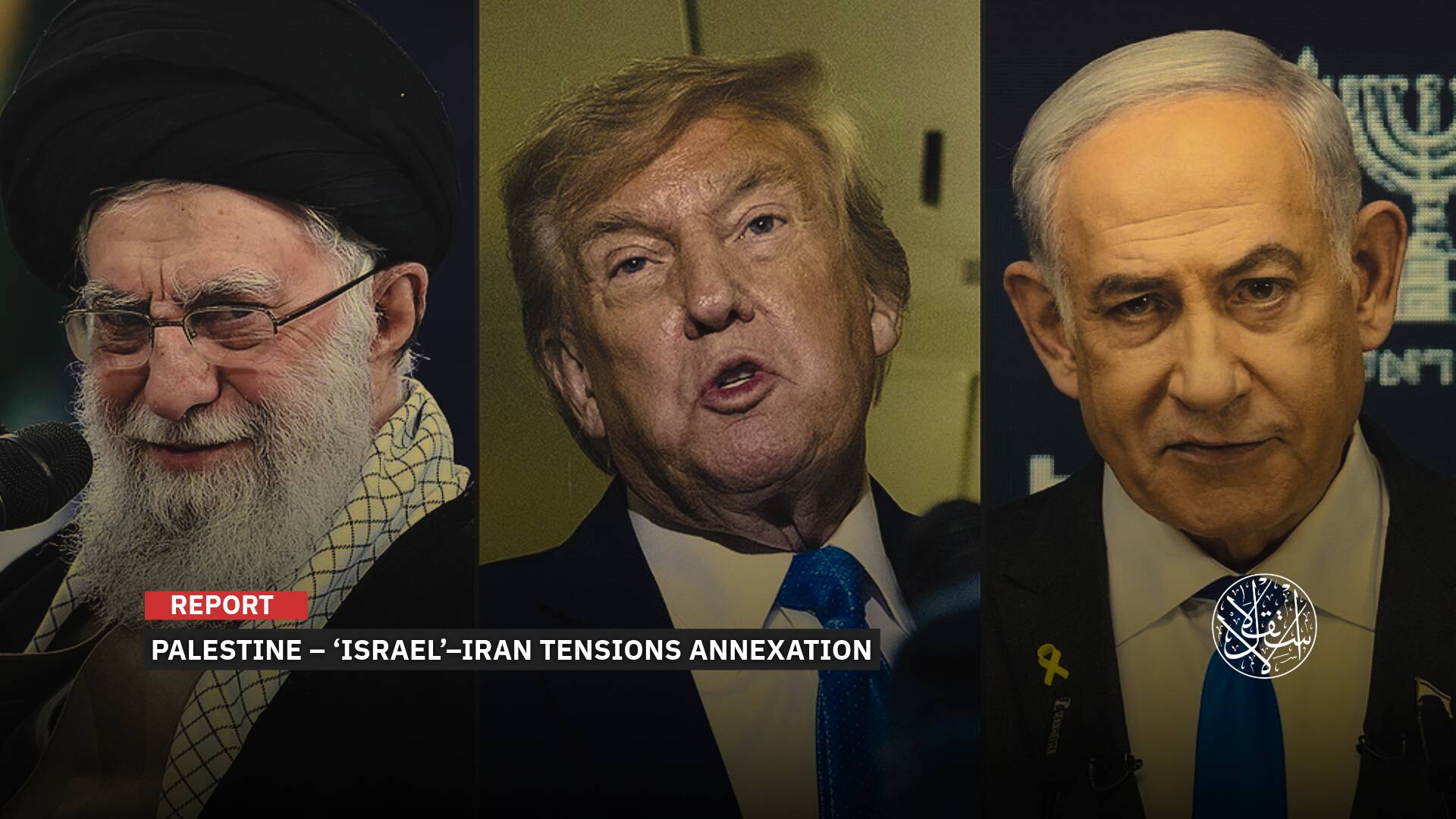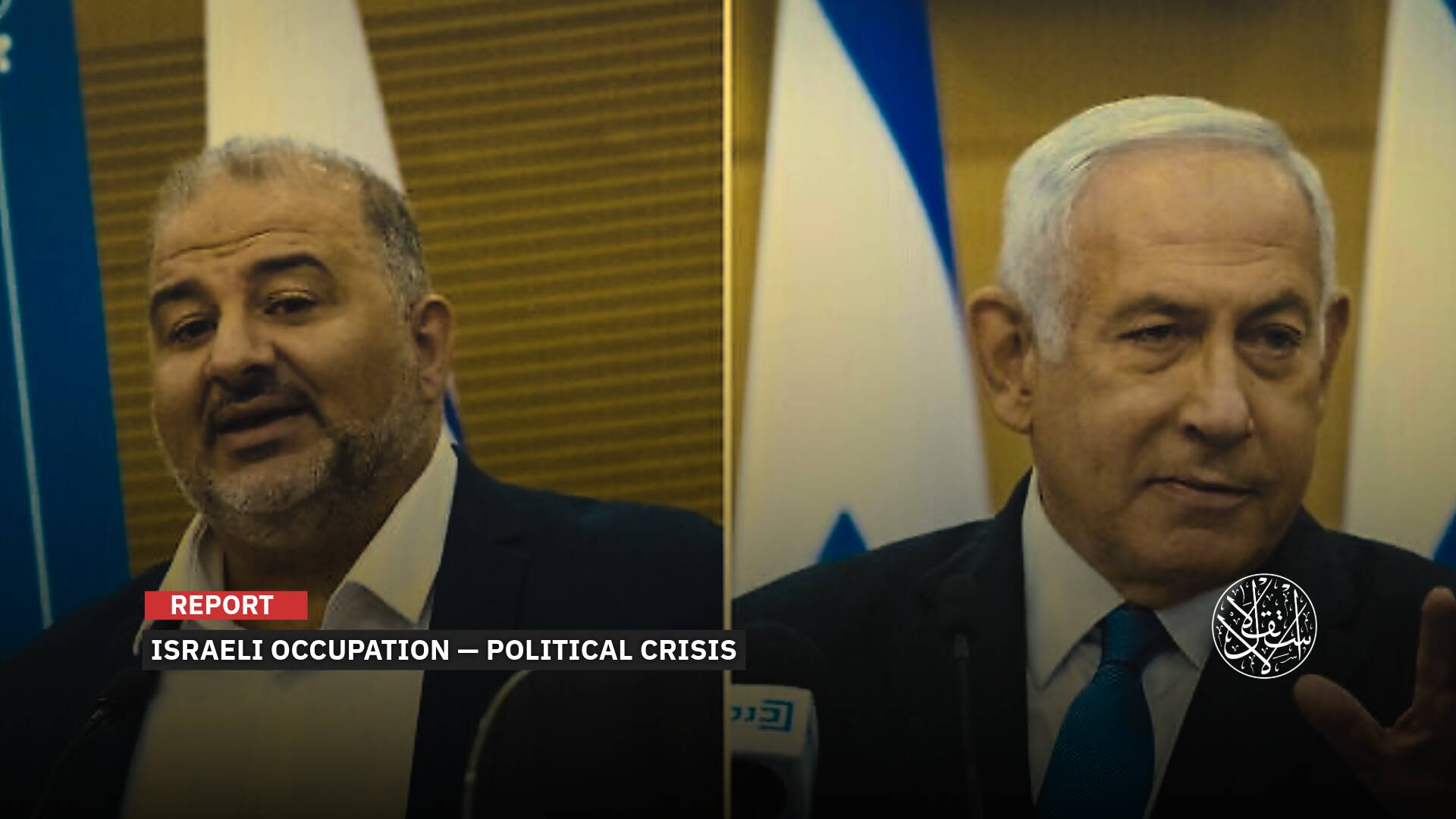Despite Their Conflicting Positions, How Did the Ukraine War Affect Turkiye–US Relations?

Between ups and downs, relations between Turkiye and the United States are oscillating despite the two NATO allies' need for each other, especially in light of the tension between Washington and Moscow.
In early April 2022, Ankara announced the launch of the Turkish-American strategic mechanism within the framework of the understanding reached by Turkish President Recep Tayyip Erdogan and counterpart American Joe Biden during their meeting on the sidelines of the G20 Leaders Summit in Rome in October 2021.
Positive Approach
The announcement was followed by a talk about a positive approach expressed by the US State Department regarding the sale of F-16 fighters to Turkiye, based on the relations between the two countries in the North Atlantic Alliance (NATO).
In a message to Congress, the US State Department drew attention to Turkiye's importance as it has the second largest army in alliance and the services it provides with its allies in the alliance.
It referred to Turkiye's position on the Russian war on Ukraine and Ankara's support for the latter's territorial integrity, and that its defense cooperation is a deterrent against what it described as harmful elements in the region.
The change in the US position was attributed by the State Department to the existence of important interests in the bilateral relations between the two countries, supported by trade relations in the field of defense.
It pointed out that Turkiye paid a heavy price as a result of the sanctions imposed on it due to the purchase of the Russian S-400 system.
It seems that the announced mechanism may open a new page in the relations between the two countries, after they worsened since Turkiye signed the deal to purchase the advanced S-400 anti-aircraft missile system from Russia on September 12, 2017.
Relations became tense after Ankara received the S-400 system on July 12, 2019.
In December 2020, the administration of former US President Donald Trump announced the imposition of sanctions on Ankara, targeting the largest Turkish defense industry development body and its head, Ismail Demir, and other employees for purchasing the Russian system.
Washington decided to suspend Ankara's participation in the F-35 program, which Ankara rejected as a partner in its manufacture and not just a buyer.
The Turkish side, according to Defense Minister Hulusi Akar, considered that the US sanctions against Turkiye undermine the values of the alliance between the two countries and undermine confidence between the two allies.
Ankara says that purchasing the S-400 system is a necessity to maintain Turkiye's security and stability, and not a marginal option.

Observers believe that resolving some files between Turkiye and the West in general and the United States in particular comes thanks to the Turkish role in the Ukrainian war crisis from a political point of view, on the one hand, and the Turkish Bayraktar drones, which showed a special importance in this war on the other hand.
A report by the American Al-Monitor website indicated that Western countries are moving to lift sanctions on the Turkish defense industries, because of its positive and influential role in the Ukraine war, which has been going on since February 24, 2022, which revived NATO and relatively lessened the isolation imposed on Turkiye for years.
The report, published in early April, indicated that Russia's war on Ukraine had restored the value of the Turkish role in NATO to the center of attention, which prompted Erdogan to try to make the best use of it.
According to the analyzes, several factors emerged for the Turkish role in the Russian war on Ukraine that might lead to a change in the balance in Turkish-American relations, most notably Turkiye’s categorical rejection of the Russian invasion and the closure of the Bosphorus and Dardanelles straits to warships, according to the Montreux Convention, and Ankara’s diplomatic efforts to resolve the crisis politically, which includes letters of appreciation from Washington to Ankara.
The war also revealed the institutional importance of NATO and its geopolitical position with regard to the security of Europe, confirming the decisive Turkish role in the alliance.
Turkiye has emerged as a main supporter of protecting Ukraine's security, territorial integrity and political unity and condemning the Russian invasion, despite the deep economic ties that link Moscow and Ankara.
Analysts do not rule out that Turkiye will take a more radical stance against Russia if negotiations fail and the escalation between Moscow and Washington continues, which could revive the Turkish-American alliance in the long term.

Old Alliance
Essam Abdel Shafi, President Academy of International Relations and Director of the Egyptian Institute for Political Studies, said that “there are many considerations that govern Turkish-American relations, which are not new today, but extend for several decades, starting with the interaction that can be described as strategic, especially after World War II.”
He added in a statement to Al-Estiklal that “Turkiye stressed its importance to the Western system, whether in dealing with the Syrian or Iraqi file or confronting the Russian expansion in the region, despite the conflicting Turkish-American positions and their collision with some repercussions, such as the events of September 2001, the American invasion of Iraq and the Turkish position on the Arab revolutions.”
“The relations between Ankara and Washington witnessed more tension with Joe Biden assuming the presidency of the United States in January 2021, against the background of his negative statements towards the Turkish regime and his quest to get rid of it,” Dr. Abdel Shafi said.
It is noteworthy that the administration of former President Barack Obama, who was then Vice President Biden at the time, was accused of masterminding the failed coup attempt in Turkiye in July 2016.
“The developments of regional and international events, especially with the developments of the Russian aggression against Ukraine, have pushed the direction of calm between the two parties, with the emergence of the importance of the Turkish role in the Russian-Ukrainian negotiation file, given Turkiye's good relations with both sides of the crisis,” he sees.
“US-Turkish relations are primarily strategic, and the tensions that occur are an exception. Therefore, talking about a joint mechanism for coordination between the two countries should actually go in the direction of consolidating the ties between them,” he affirms.
“Turkiye, during the past year, has been moving towards normalizing relations with America's allies in the region, with whom it has been clashing over the past ten years, such as Saudi Arabia, the UAE, Egypt and ‘Israel’, as well as Greece and Armenia,” Dr. Abdel Shafi pointed out.
“The normalization policies would calm many files and hotbeds of tension, and strengthen US-Turkish relations, in line with Washington's strategic directions at this stage, which seeks to consolidate efforts in confronting China economically, and Russia diplomatically and militarily,” he pointed out.
Professor Ahmet Uysal, head of the Middle East Studies Center (ORASAM), believes that the announcement of the strategic mechanism between Ankara and Washington is a positive step towards improving relations between the two allies.
He told Al-Estiklal that “Turkiye and the United States have been allies in NATO since the Kemalists (the era of the founder of the modern state, Mustafa Kemal Ataturk), but with the arrival of the Justice and Development Party to power, Ankara's independence appeared, which Washington does not want.”
“After that, Washington took a negative stance in support of the PKK groups (which Turkiye classifies as terrorist), as well as supporting the Gulen organization to fight the justice and development governments,” according to Pro. Uysal.
“With the failure of the organizations to act against the government and the emergence of a stronger Turkiye, this may change the US position, especially after Ankara's role in the Russian war on Ukraine,” he added.

On his part, the former American diplomat Moufid el-Deek confirmed that “the announced strategy may open the way for stronger relations between Turkiye and the United States in the future, especially since Ankara has begun to pursue different policies towards Washington's allies, such as the Gulf states and Egypt.”
He told Al-Estiklal that “although the United States wanted Turkiye to have a clear and more supportive stance against the Western position, NATO and the European Union against the Russian invasion of Ukraine, but Ankara showed an unbiased stance for any party to help it mediate diplomatically between Moscow and Kiev in order to broker a solution.”
“Washington did not oppose the Turkish position, especially as it took an important position in closing the Bosphorus and Dardanelles straits and preventing Russian ships from passing in accordance with the Montreux Convention, a position that undoubtedly had a positive impact,” he added.
“Although Turkiye has not been involved in imposing sanctions on Russia, and has not explicitly supplied Ukraine with arms like NATO countries and the European Union, but the Turkish marches showed great effectiveness in Ukraine, which enhances Ankara's strength and position, even if Kyiv obtained these marches before the invasion,” he noted.
“The important Turkish role in the region and in NATO is making the United States tend to strengthen relations with a strong ally and build a new stage with it,” Mr. el-Deek added.
“Washington will not reject any approaches to improving relations with Turkiye under Erdogan's government, despite the differences in many files,” he stressed.
The former American diplomat expected that “the United States would work to support economic cooperation with Turkiye at this critical stage approaching the presidential elections in 2023.”
Sources
- Washington shows positive approach to selling F-16 fighters to Ankara [Arabic]
- The launch of the Turkish-American strategic mechanism in Ankara [Arabic]
- Will Ukraine crisis help Turkey dodge Western arms embargoes?
- US sanctions on Turkiye: NATO refuses, and a united home front in confronting it [Arabic]
- How did Russia's invasion of Ukraine affect Turkiye–US relations? [Turkish]









